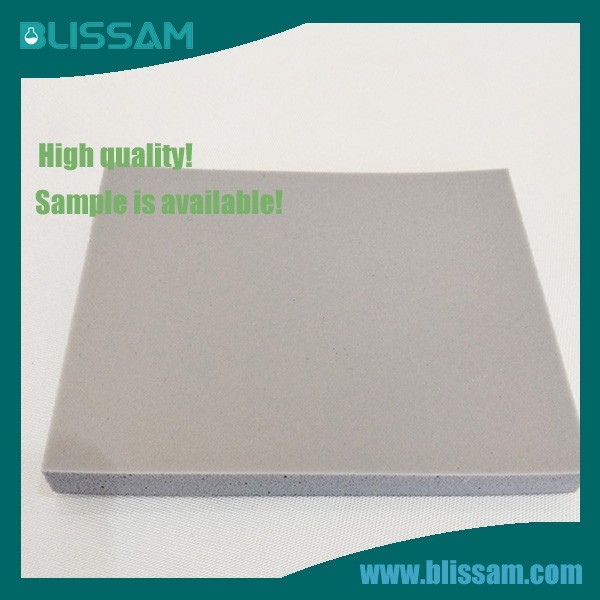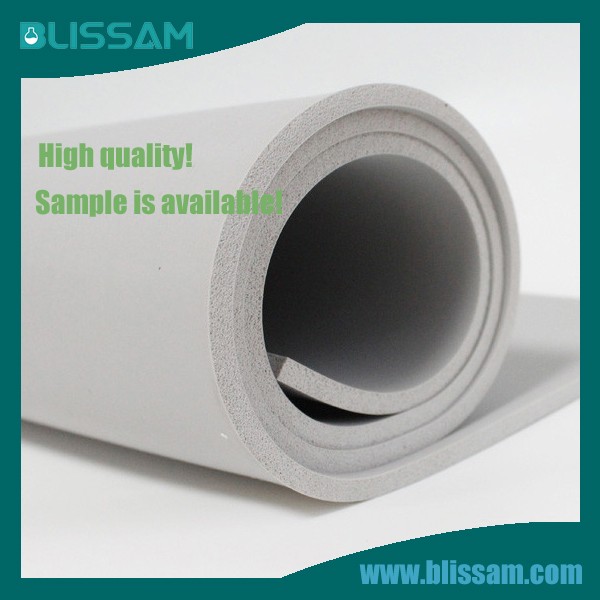Silicone foam has emerged as a versatile and reliable material in various industries, particularly in applications requiring insulation and cushioning. Known for its exceptional properties, silicone foam offers a unique combination of thermal stability, flexibility, and durability, making it an ideal choice for a wide range of uses. In this article, we will explore the advantages of silicone foam in insulation and cushioning applications, supported by specific numerical parameters. As a leading provider of advanced materials, "BLISSAM" specializes in high-quality silicone foam products that meet the diverse needs of industries worldwide.
Silicone foam is a cellular silicone rubber material characterized by its lightweight structure and closed-cell or open-cell configuration. The foam is created by incorporating a blowing agent into a silicone elastomer, which expands during the curing process to form a foam with excellent thermal, mechanical, and electrical properties. The density and firmness of silicone foam can be adjusted during manufacturing, allowing for customized solutions tailored to specific applications.
One of the most significant advantages of silicone foam is its outstanding thermal stability. Silicone foam can withstand extreme temperatures, ranging from -60°C to 250°C, without losing its insulating properties. This makes it an ideal material for applications that require consistent performance under harsh thermal conditions.
Specific Parameters: BLISSAM’s silicone foam products have a thermal conductivity of 0.2 W/m·K, which provides effective thermal insulation in both high-temperature and low-temperature environments. This property is particularly useful in industries such as automotive, aerospace, and electronics, where maintaining stable temperatures is critical.
Silicone foam’s low thermal conductivity ensures that it effectively minimizes heat transfer, making it an excellent choice for thermal insulation. This is crucial in applications like HVAC systems, where energy efficiency is a top priority.
Specific Parameters: The thermal conductivity of silicone foam can be as low as 0.2 W/m·K, significantly reducing heat loss and contributing to energy savings. BLISSAM’s silicone foam products are designed to provide superior insulation, helping to maintain desired temperatures while reducing energy consumption.
Silicone foam exhibits excellent fire resistance, with the ability to self-extinguish when exposed to flames. This property makes it a preferred choice for insulation in environments where fire safety is a concern, such as in building construction and transportation.
Specific Parameters: BLISSAM’s silicone foam meets UL 94 V-0 standards, indicating that it is highly flame retardant. This level of fire resistance ensures that the material can be used safely in critical applications where fire hazards are present.

Silicone foam offers excellent compression set resistance, meaning it can recover its original shape after being compressed. This property is essential for cushioning applications where the material needs to provide long-term support and shock absorption.
Specific Parameters: BLISSAM’s silicone foam products have a compression set of less than 5% after 22 hours at 100°C, ensuring that the material maintains its cushioning properties over time. This makes it ideal for use in gaskets, seals, and cushioning pads that are subjected to repeated compression.
Silicone foam is highly effective at damping vibrations, making it an excellent choice for cushioning sensitive components in electronics, automotive, and aerospace applications. The material absorbs and dissipates vibrational energy, protecting components from damage and reducing noise.
Specific Parameters: BLISSAM’s silicone foam offers a damping coefficient of 0.4, providing effective vibration isolation in demanding environments. This property is particularly beneficial in automotive applications, where reducing vibration and noise is critical for both performance and comfort.
Silicone foam is inherently resistant to water, chemicals, and UV radiation, ensuring long-lasting performance in harsh environments. This makes it suitable for outdoor cushioning applications and in industries where exposure to harsh chemicals is common.
Specific Parameters: BLISSAM’s silicone foam has a water absorption rate of less than 1% and excellent resistance to a wide range of chemicals, including oils, solvents, and acids. This durability ensures that the foam remains effective in providing cushioning and protection even in challenging conditions.

Silicone foam offers numerous advantages in insulation and cushioning applications, making it a versatile and valuable material across various industries. Its thermal stability, low thermal conductivity, and fire resistance make it an ideal choice for insulation, while its compression set resistance, vibration damping, and chemical resistance ensure effective cushioning. At BLISSAM, we are committed to providing high-quality silicone foam products that meet the specific needs of our customers. Whether you’re looking for insulation solutions for high-temperature environments or cushioning materials that offer long-term durability, BLISSAM’s silicone foam products deliver reliable performance and exceptional value.
Contact:
Phone: +86-15957191858
E-mail: info@blissam.com
Whatsapp:+8615957191858
Add: A647, No. 9, Xiyuan Road, Xihu District, Hangzhou, Zhejiang, China
We chat
